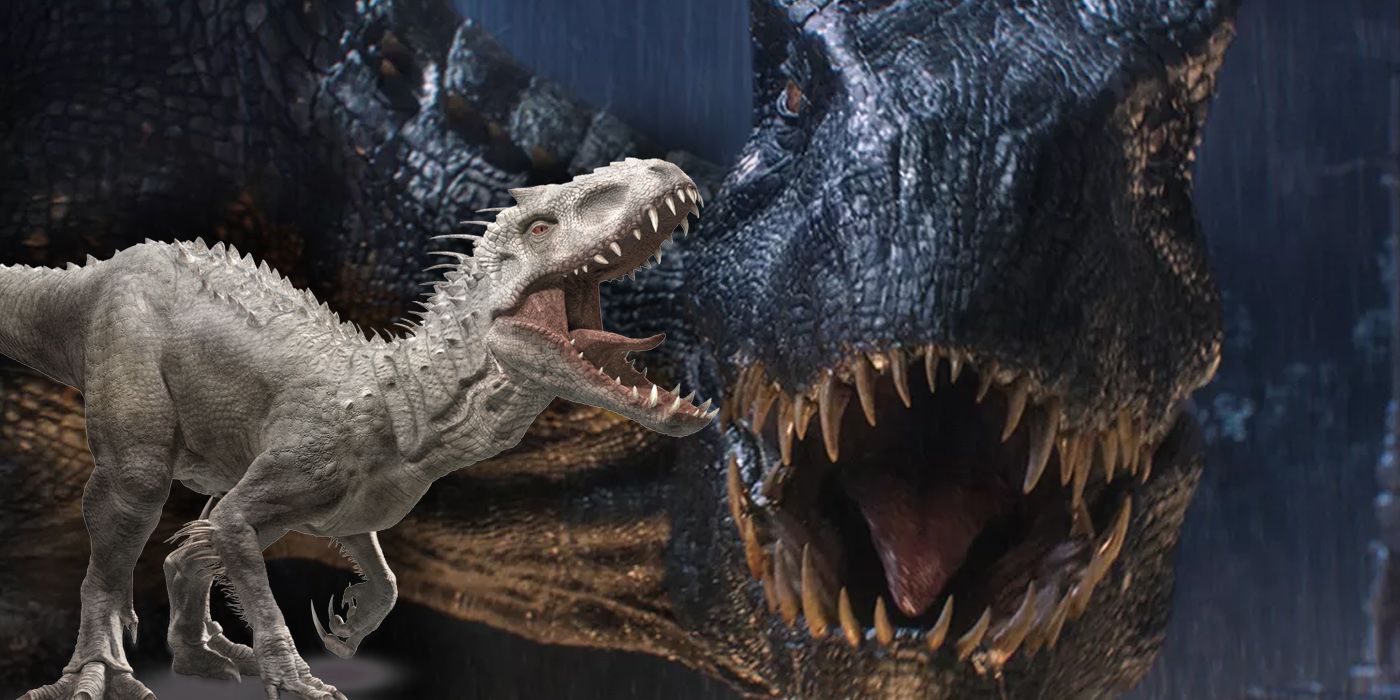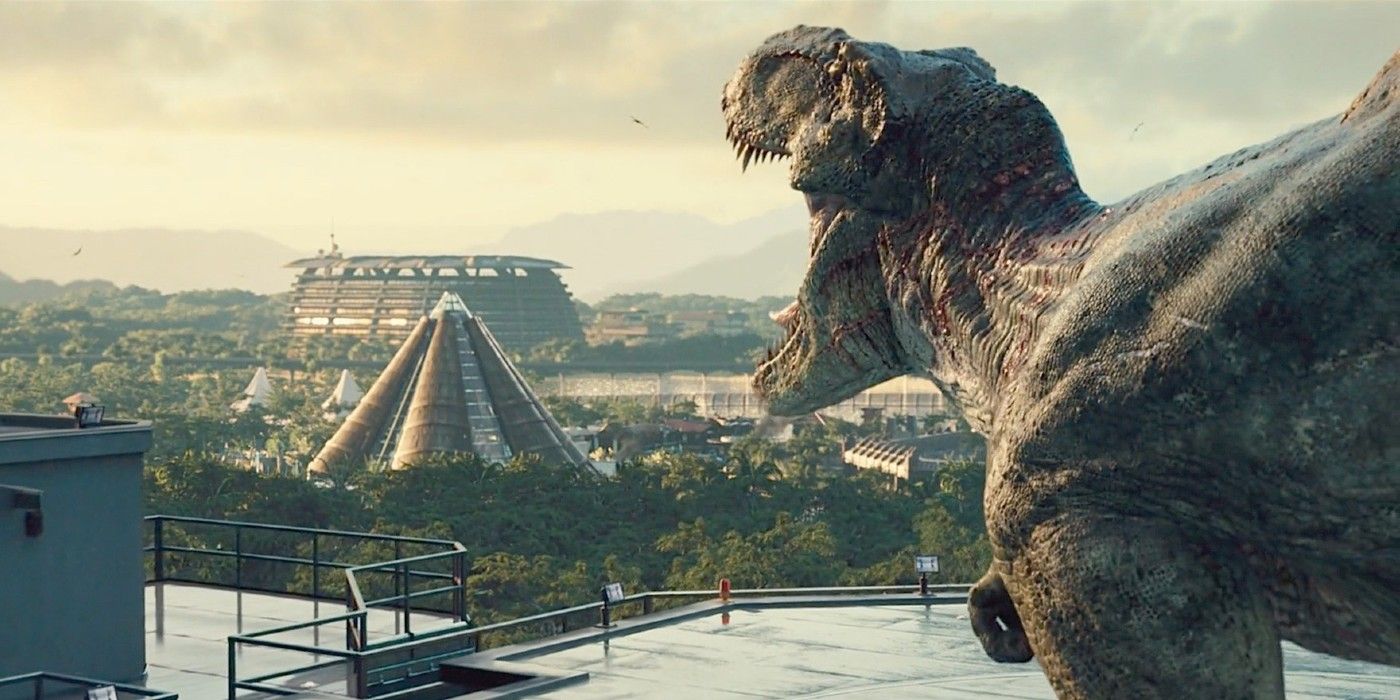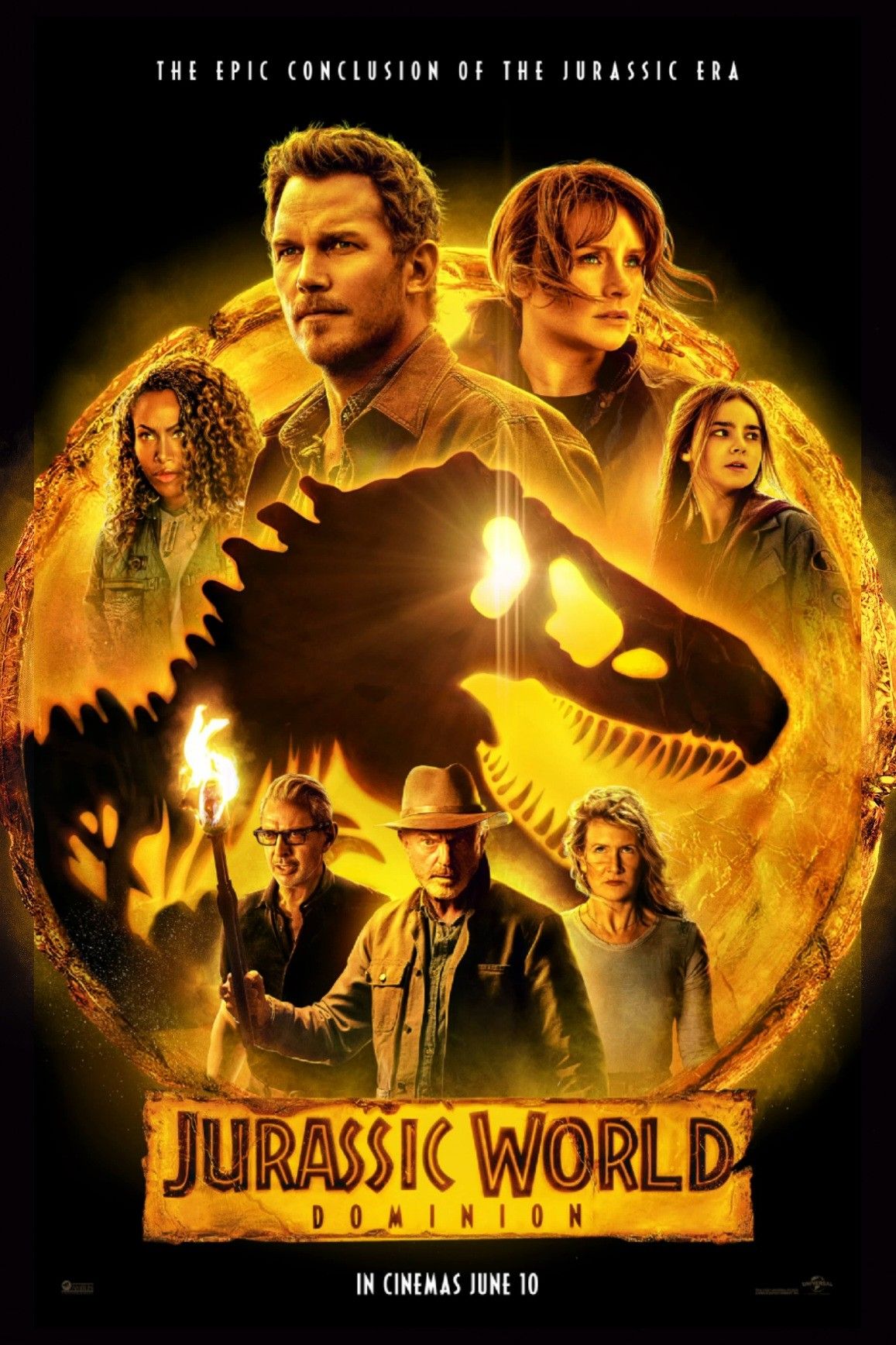If Jurassic World: Dominion is to recapture the magic of Steven Spielberg's original 1993 Jurassic Park, it needs to stop weaponizing the dinosaurs. The 2015 movie Jurassic World, the fourth movie in the Jurassic Park franchise, revived the property and was followed by the sequel Jurassic World: Fallen Kingdom, which continued the story of the previous film's protagonists Claire Dearing and Owen Grady; however, the third movie in the franchise needs to take the story in a different direction — particularly, it needs to lose the militarized dinosaur subplot.
In Jurassic World, Claire is the operations manager of Jurassic World, a tourist attraction in which living dinosaurs are on display for paying customers. In order to attract more business, the park invests in creating a new hybrid species of dinosaur that is particularly deadly. Predictably, the dinosaur escapes its enclosure, which makes up the movie's primary conflict. A subplot, however, involves the InGen Security head Vic Hoskins trying to develop a Velociraptor military program. The second Jurassic World film continued the military subplot, with BD Wong reprising his role as geneticist Dr. Henry Wu; in the movie, Wu has created a new hybrid, the Indoraptor, that was designed to be a living weapon. The second movie centers around various nefarious parties who want to capture and exploit the dinosaurs for profit, and the protagonists who want to save the prehistoric creatures.
While reports describe the Jurassic World 3 script as "awesome," little is publicly known about the third movie's plot. Jurassic World: Fallen Kingdom ends with dinosaurs escaping into California, with Jeff Goldblum's Dr. Malcom stating that they are now in a "Neo-Jurassic Age" in which humans and dinosaurs must learn to co-exist. While there is still potential for the military subplot to continue, and Dr. Wu's fate is left ambiguous in the previous movie, the sixth movie in the Jurassic Park franchise would be better if it abandoned the plotline completely.
None of the Jurassic Park sequels have come close to recapturing the magic of the original movie; this is in part because Jurassic Park's effects were so groundbreaking, but it is also because the sequels lack the pathos that underscored the events of the original movie. The 1993 sci-fi movie is imbued with a sense of awe and wonder. Yes, the dinosaurs are dangerous, but the audience is encouraged to sympathize with the impossibly-massive creatures: they didn't ask to be brought back to life, and now they're struggling to fit into a world they don't understand. Unlike Jurassic World's Indominus Rex, or Fallen Kingdom's Indoraptor, the carnivorous T-Rex and and Velociraptors aren't evil monsters — they're simply predators doing what they normally do to hunt and survive. The iconic scene of the T-Rex roaring in the destroyed rotunda while the "Jurassic Park" welcome banner falls from the ceiling is powerful because it drives home the movie's central message: the dinosaurs are, ultimately, victims of John Hammond's hubris. They may have cause the damage, but ultimately, they're not responsible.
Jurassic World and Fallen Kingdom both failed to respect the dinosaurs at the center of their plots. Although Claire has become a "dinosaur activitst" by the fifth movie, there's never a point at which Fallen Kingdom successfully evokes sympathy for the dinosaurs from the audience. The idea that dinosaurs can be used as living weapons is undeniably silly and illogical, but it also further characterizes the creatures as an objectified means of violence, rather than living, breathing animals. In order for Jurassic World: Dominion to properly pay homage to the legacy of the original film, it needs to move on from this particular idea and return to portraying dinosaurs in a more complex — and ultimately satisfying — light.



